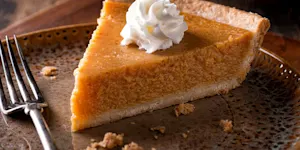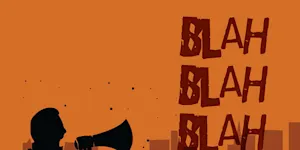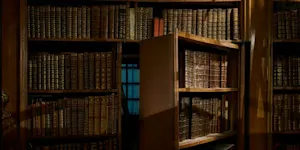What Makes This Word Tick
"Bamboozle" is one of those delightfully quirky words that makes the English language so colorful. It's a verb that means to deceive, confuse, or trick someone. It carries an air of mischief, like the sort of trickery you'd expect from a clever con artist or a playfully cunning fox.
If Bamboozle Were a Person…
Imagine a charismatic trickster with a twinkle in their eye, always ready with a clever ruse or a practical joke. They'd be the life of the party, spinning tales so convincing that you'd buy into them hook, line, and sinker—only to realize later you'd been duped, but not minding too much.
How This Word Has Changed Over Time
"Bamboozle" has retained its playful connotation since its debut in the English language in the early 18th century. Originally, it leaned heavily towards trickery and deception, much as it does today, but earlier nuances might have hinted at befuddlement or perplexity more than outright deceit.
Old Sayings and Proverbs That Use Bamboozle
Though "bamboozle" itself might not headline many traditional proverbs, it embodies the spirit of sayings like "pulling the wool over someone's eyes" and "leading someone up the garden path," which both warn against deceit and trickery.
Surprising Facts About Bamboozle
Did you know that nobody really knows where "bamboozle" comes from? Its etymology is a bit of a mystery, which is fitting given its meaning. Also, it was once considered a slang term, viewed with some disdain by linguistic purists of the 18th century.
Out and About With This Word
"Bamboozle" makes its presence felt in every context where deception thrives—from card games to corporate boardrooms. You might hear it used in the world of espionage or hear it jokingly from a magician explaining how they "bamboozled" their audience.
Pop Culture Moments Where Bamboozle Was Used
In the world of pop culture, "bamboozle" has been used in films and television shows to describe characters who engage in cunning schemes, like the classic antics of Bugs Bunny outsmarting his foes.
The Word in Literature
"Bamboozle" often pops up in humorous or detective genres—think of a mystery novel where the detective nearly gets misled by a cunning criminal. Authors who delight in clever wordplay, like P.G. Wodehouse, would likely have found a place for such a word in their witty narratives.
Moments in History with Bamboozle
This word feels like it would have been right at home during the many instances when historical figures were involved in intrigues and schemes—from spies of the Cold War to swindlers during the Gold Rush era.
This Word Around the World
While "bamboozle" is uniquely English, its essence is reflected in phrases from other languages. In France, you might say "rouler dans la farine," translating to "roll someone in flour," which colorfully describes being duped.
Where Does It Come From?
The origin of "bamboozle" is shrouded in mystery, appropriately enough for a word about deception. Some theories suggest it might have been inspired by similar-sounding words in various dialects or even nonsense syllables that convey the sense of confusion and trickery.
How People Misuse This Word
People sometimes use "bamboozle" to describe any complicated situation, even without intentional deceit involved. Its core meaning involves purposeful trickery, so using it here dilutes its mischievous charm.
Words It’s Often Confused With
Bewilder: This means to confuse, but not necessarily with intent to deceive.
Hoodwink: Similar in meaning, but often suggests a stealthier form of trickery.
Confound: Means to confuse but lacks the connotation of deception.
Additional Synonyms and Antonyms
Synonyms for bamboozle include hoodwink, dupe, and deceive. Antonyms include enlighten, inform, and clarify, presenting a good reminder that clarity is the kryptonite for any bamboozler.
Want to Try It Out in a Sentence?
Sure, here you go: "Despite the elaborate presentation, the financial guru's plan turned out to be a classic example of how investors could be bamboozled by smoke and mirrors."
















